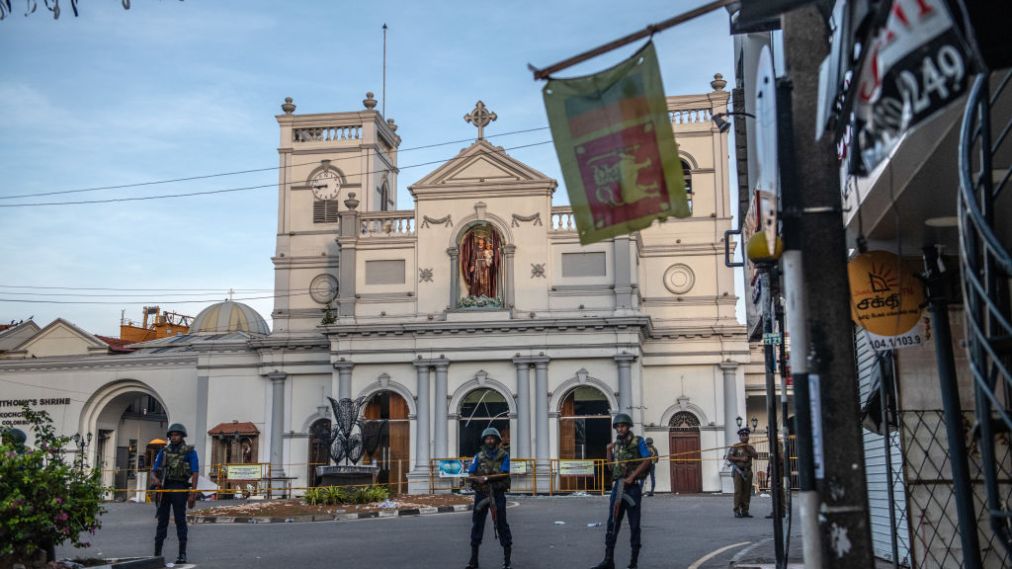 By Vrinda Goel, ‘21 Mohammed Zahran was publicly known for his religious radicalism. Denouncing other faiths, vehemently speaking agaisnt young girls dancing, and extremist preaching were part of his widespread rhetoric. Thursday morning on April 18th, in Kattakundy, Sri Lanka, authorities were warned by the Sufi Muslim community that there was a possible terrorist threat targeting holy sites. It was ignored.Last Sunday morning, upwards of 350 victims in three churches and three luxury hotels were killed. The attacks took place on Easter and were deliberately geared towards those of Christian faith and Western origin, hence the sites of the attack. Zahran was one of nine attackers, all of whom the Prime Minister declared came from “well educated” or “upper middle class families.”Another one of the nine attackers, Jameel Mohammed Abdul Latheef, trained in Syria for three to six months with the Islamic State in 2014, establishing contacts with high profile recruiters of the terrorist organization according to Sri Lankan authorities. 3 other attackers are also being investigated for travelling to the Middle East and potentially linking up with the Islamic State, which took credit for the Easter attacks last week. Their leader, Abu Bakr al-Baghdadi, purportedly on video called them an act of vengeance for the defeat of the ISIS caliphate in Syria earlier this year. Al Baghdadi’s identity could not be verified, although if it was in fact him, it would be his first video appearance in approximately 5 years.What does it matter? While the link between terrorism and poverty might be blurred in this case, officials need to know of other indicators to look for instead- which they did. Last year in southern India, an Islamic State suspect was cited saying he was inspired to join after watching one of Mr. Zahran’s videos. His mosque never received religious license. The markers for Mr. Zahran’s extremist views were clear, and yet officials in Sri Lanka repeatedly say they never thought he would go so far as to act on them.The problem here is if we are not proactive with blatant threats, we allow a breeding ground of hatred to foster itself, resulting in death, destruction, and the infiltration of hostility amongst ourselves. It’s important to note that Zahran’s mosque in Sri Lanka never received religious license; he was never condoned by official Muslim leaders. He acted on his own hatred in the name of what he interpreted as Islam, killing others for their faith and their origins.We cannot spin this story into one of Muslims against Christians- this was a radical man who could have been stopped had the people in power taken his very dangerous threats seriously.Zahran’s threats were, according to sources, “clear as day.” We must do better. Even one life is too much to pay.
By Vrinda Goel, ‘21 Mohammed Zahran was publicly known for his religious radicalism. Denouncing other faiths, vehemently speaking agaisnt young girls dancing, and extremist preaching were part of his widespread rhetoric. Thursday morning on April 18th, in Kattakundy, Sri Lanka, authorities were warned by the Sufi Muslim community that there was a possible terrorist threat targeting holy sites. It was ignored.Last Sunday morning, upwards of 350 victims in three churches and three luxury hotels were killed. The attacks took place on Easter and were deliberately geared towards those of Christian faith and Western origin, hence the sites of the attack. Zahran was one of nine attackers, all of whom the Prime Minister declared came from “well educated” or “upper middle class families.”Another one of the nine attackers, Jameel Mohammed Abdul Latheef, trained in Syria for three to six months with the Islamic State in 2014, establishing contacts with high profile recruiters of the terrorist organization according to Sri Lankan authorities. 3 other attackers are also being investigated for travelling to the Middle East and potentially linking up with the Islamic State, which took credit for the Easter attacks last week. Their leader, Abu Bakr al-Baghdadi, purportedly on video called them an act of vengeance for the defeat of the ISIS caliphate in Syria earlier this year. Al Baghdadi’s identity could not be verified, although if it was in fact him, it would be his first video appearance in approximately 5 years.What does it matter? While the link between terrorism and poverty might be blurred in this case, officials need to know of other indicators to look for instead- which they did. Last year in southern India, an Islamic State suspect was cited saying he was inspired to join after watching one of Mr. Zahran’s videos. His mosque never received religious license. The markers for Mr. Zahran’s extremist views were clear, and yet officials in Sri Lanka repeatedly say they never thought he would go so far as to act on them.The problem here is if we are not proactive with blatant threats, we allow a breeding ground of hatred to foster itself, resulting in death, destruction, and the infiltration of hostility amongst ourselves. It’s important to note that Zahran’s mosque in Sri Lanka never received religious license; he was never condoned by official Muslim leaders. He acted on his own hatred in the name of what he interpreted as Islam, killing others for their faith and their origins.We cannot spin this story into one of Muslims against Christians- this was a radical man who could have been stopped had the people in power taken his very dangerous threats seriously.Zahran’s threats were, according to sources, “clear as day.” We must do better. Even one life is too much to pay.